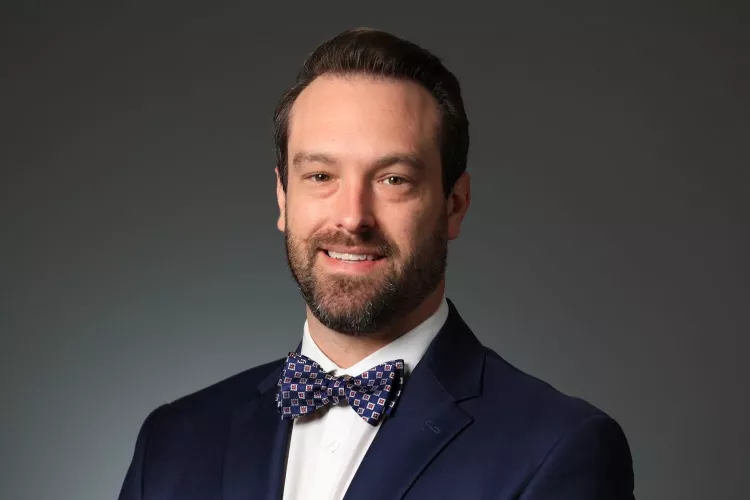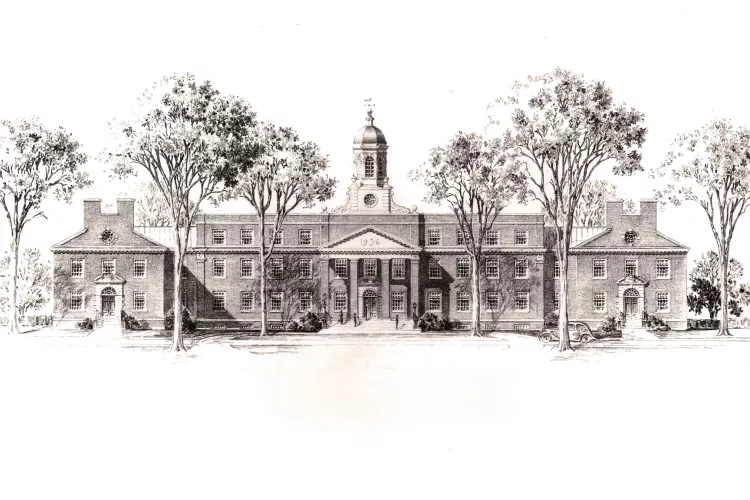UofL internal grants support research in inclusion, burnout, robotics and more
October 2, 2024Dozens of University of Louisville researchers have been awarded internal grant funding to explore topics ranging from empowerment and inclusion to artificial intelligence and robotics.
The funding comes via two annual internal grants programs through the UofL Office of Research and Innovation: the Jon Rieger Seed Grants and Programmatic Support programs.
Jon Rieger Seed Grants, in partnership with the Office of Undergraduate Research and Creative Activity, provide up to $8,000 to assist permanent full-time, active-status early career researchers in the initiation of new scholarship, creative activities and other research approaches which also provide a professional development opportunity for undergraduate students. Winners this round were:
- Understanding fungal microbiome networks supporting imperiled orchid population growth (Konrad Bresin, College of Arts & Sciences)
- Development of inverted glancing angle deposition (I-GLAD) process for antibacterial surfaces (Xiaoyu Chen, J.B. Speed School of Engineering)
- Effect of aging conditions on the bond strength to zirconia (Yash Chitalia, J.B. Speed School of Engineering)
- Overcoming resistance to antiracism: navigating group-level emotions (ORANGE) (Rafael Demarco, College of Arts and Sciences)
- Drinking in Dyads: Understanding the Rewarding Effects of Alcohol in LGBTQ+ Individuals (Derica Goncalves Tavares, College of Arts and Sciences)
- The Gen Z teacher project: Gen Z teacher circles (Austin Hubner, College of Arts and Sciences)
- Lipid profiling in young vs old stem cells (Mahsa Javid, School of Medicine)
- Women’s empowerment through community-based participatory research in Morocco (Katherine Marin, College of Education and Human Development)
- Pop-up Origami-inspired Soft Robotic Surgical Tools for Emergency Surgery (Yara Mekawi, College of Arts and Sciences)
- Minimizing backlash: Examining female scientist’s public engagement efforts (Connor Morozumi and Natalie Christian, College of Arts and Sciences)
- Investigating factors influencing science student retention using peer-led focus groups (Chuang Qu and Kevin Walsh, J.B. Speed School of Engineering)
- Self efficacy and burnout (Pamela Thomas, J.B. Speed School of Engineering)
The Programmatic Support grant provides up to $3,000 of funding to assist permanent full-time, active-status faculty with the completion of a project where other funding sources are not available. Winners this round were:
- Beyond the Addendum: Race, Sexuality, and Body Politics in Adorno’s Critical Theory (Angermann Asaf, College of Arts and Sciences)
- Reading Lessons from the Caribbean (Simona Bertacco, College of Arts and Sciences)
- Child and Parent Emotion and Sleep Study (Sara Bufferd, College of Arts and Sciences)
- Interracial Couples’ Representations in Advertising (Lindsay Della and Siobhan E. Smith-Jones, College of Arts and Sciences)
- Artificial Intelligence Based Computer-Aided Diagnostic (AI-Based CAD) Software for Early and Precise Assessment of Renal Transplant Status (Ayman El-Baz, J.B. Speed School of Engineering)
- Our World, Our Say: Leveraging Arts to Promote Health Equity in Partnership with Youth Impacted by HIV/AIDS in Hai Phong, Vietnam (Lesley Harris, Andrew Winters and Kyoungmee Byun, Kent School of Social Work)
- Quantification of Metabolism Changes in Alcohol-Associated Liver Disease Using Stable Isotope Resolved Metabolomics (He Liqing, College of Arts and Sciences)
- Remaking Indigenous Books: Cultural Translation and Native Literatures, 1833-1973 (Frank Kelderman, College of Arts and Sciences)
- Mass Incarceration, HIV, & Masculinity (Jelani Kerr and Adrienne Smith, School of Public Health and Information Sciences)
- Positively Leading Immigrant West African Athletes and Families in the Global Sport Arena (Sheron Mark, College of Education and Human Development)
- Contributions of leaf-cutting ant nests to tropical forest methane budgets (Andrew Mehring, College of Arts and Sciences)
- Border Capital: Economic Investment and Regional Transformation in Texas’ Operation Lone Star (Margath Walker, College of Arts and Sciences)
“The research and scholarship funded this year covers such a broad array of important problems and questions,” said Leigh Botner, director of research development in the Office of Research and Innovation, who leads the program. “With the internal grants program, we are proud to help support this work and I’m excited to see what these researchers accomplish.”
In addition to the programmatic and Rieger grants, two more internal grants programs will accept applications annually in fall: Collaborative Mentoring Grants (up to $10,000) and Capacity Building Grants (up to $25,000). More information is available on the Office of Research and Innovation website.
Baylee Pulliam leads research marketing and communications at UofL, building on her experience as an award-winning business, technology, health care and startups reporter. She is a proud product of the UofL College of Arts and Sciences, where she earned her undergraduate degree in English. She also holds an MBA, a Master of Arts in Organizational Leadership and is pursuing a Ph.D. in the latter with a focus on corporate innovation.
Related News



